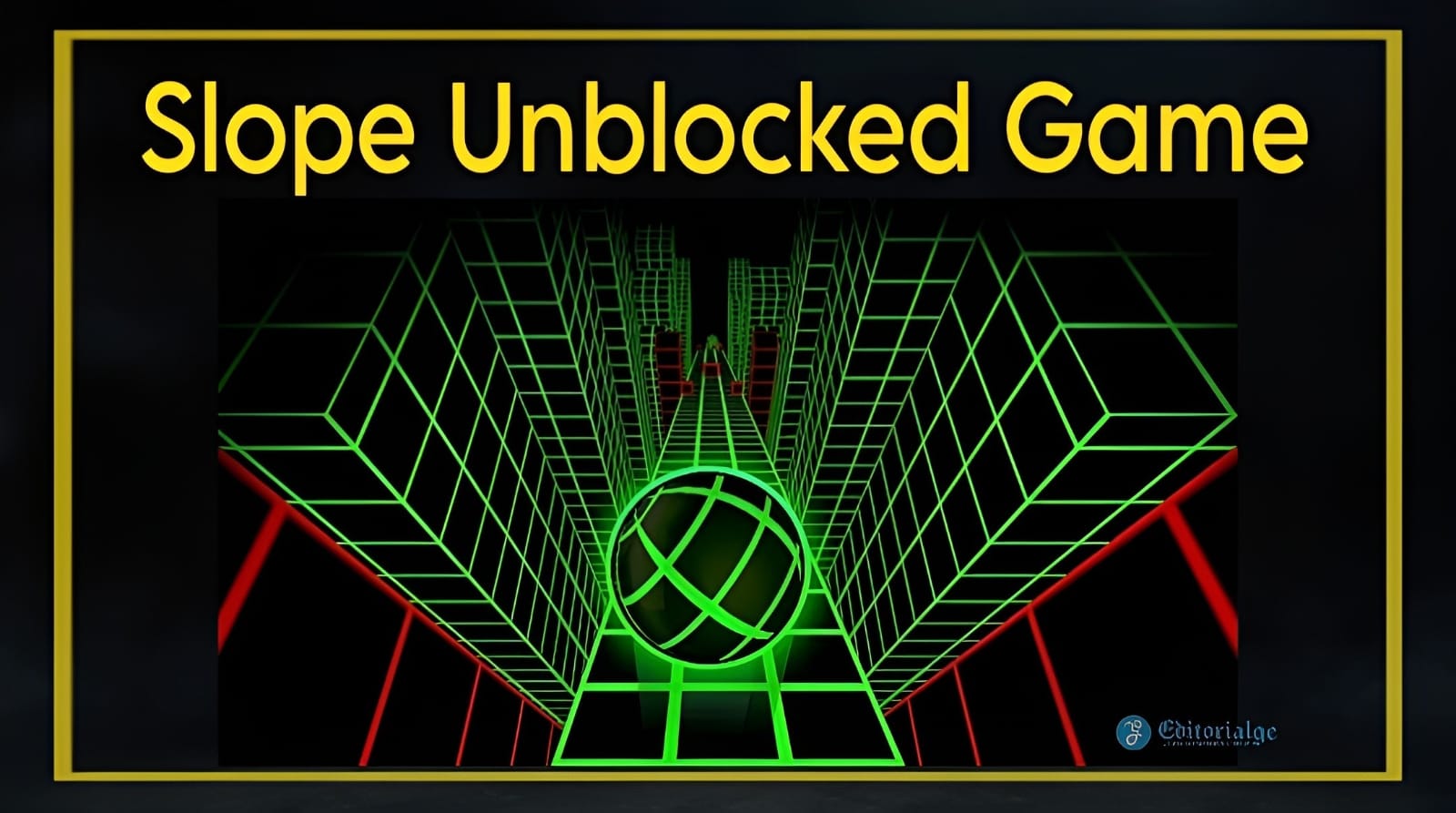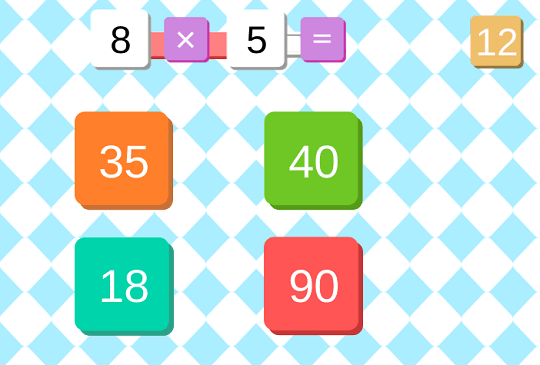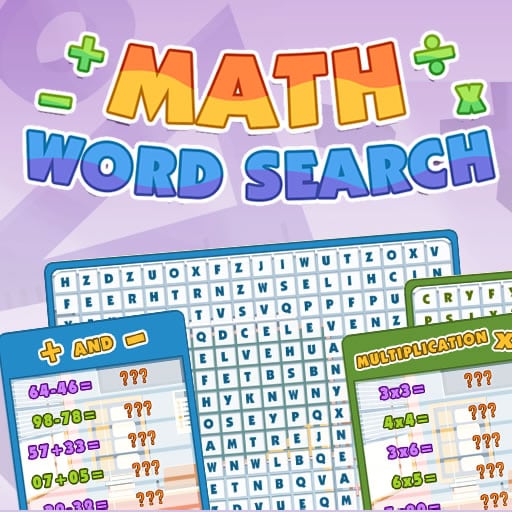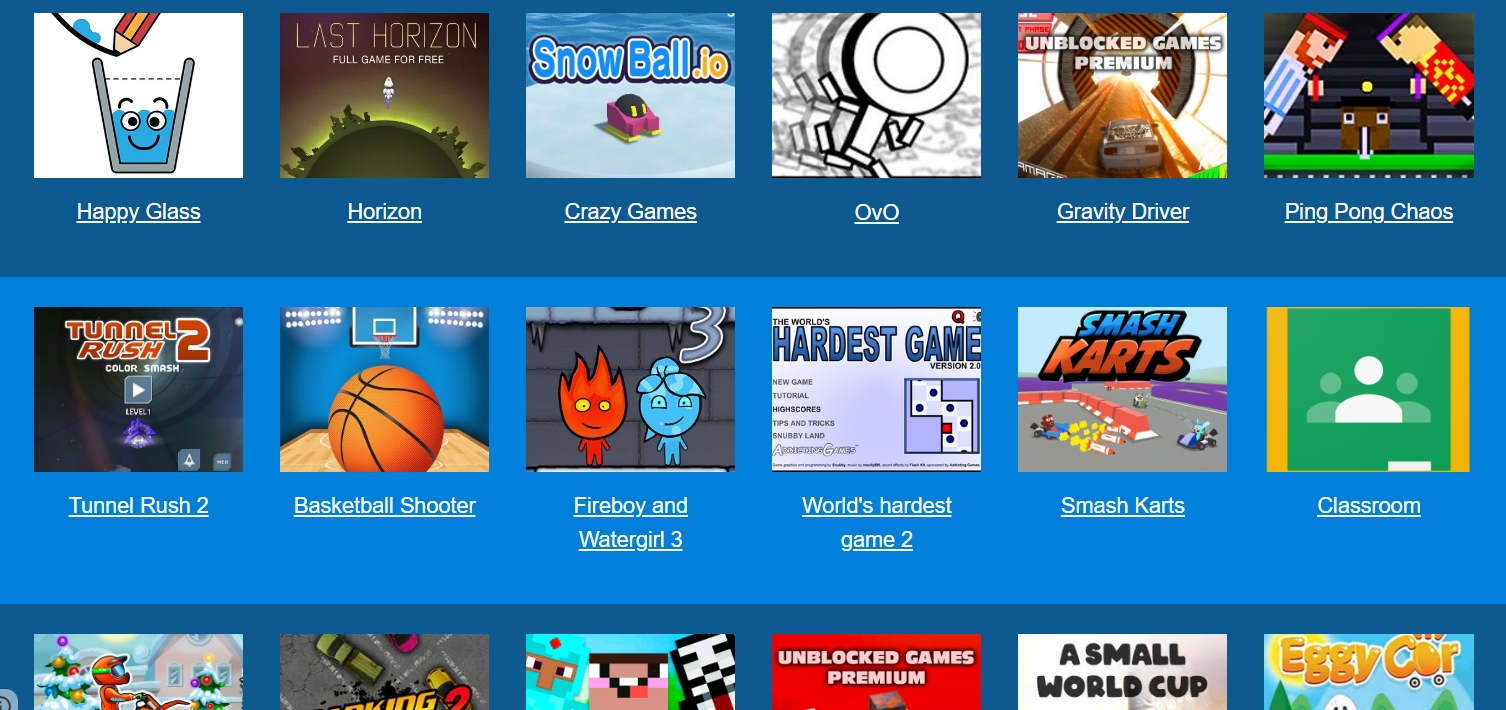Unblocked Games: A Gateway To Mathematical Exploration
Unblocked Games: A Gateway to Mathematical Exploration
Related Articles: Unblocked Games: A Gateway to Mathematical Exploration
Introduction
With great pleasure, we will explore the intriguing topic related to Unblocked Games: A Gateway to Mathematical Exploration. Let’s weave interesting information and offer fresh perspectives to the readers.
Table of Content
Unblocked Games: A Gateway to Mathematical Exploration

Unblocked games, often found in educational settings or accessed freely online, provide a unique avenue for exploring mathematical concepts in a playful and engaging manner. These games, designed to be accessible without restrictions, leverage various mathematical principles to create interactive experiences that challenge and entertain.
While seemingly simple, unblocked games encompass a diverse array of mathematical concepts, ranging from basic arithmetic to advanced logic and probability. This article delves into the mathematical underpinnings of these games, highlighting their potential to enhance understanding and foster a positive attitude towards mathematics.
The Mathematical Foundation of Unblocked Games
Unblocked games, despite their seemingly lighthearted nature, are built upon a solid foundation of mathematical principles. Let’s examine some key areas:
1. Geometry and Spatial Reasoning:
Many unblocked games involve navigating virtual environments, demanding spatial awareness and understanding of geometric concepts. Games like "Geometry Dash" challenge players to maneuver through intricate obstacle courses, requiring precise timing and spatial reasoning. This encourages players to visualize shapes, understand distances, and predict the trajectory of objects.
2. Logic and Problem-Solving:
Games like "Sudoku" or "Minesweeper" rely heavily on logical deduction and problem-solving skills. These games present players with puzzles that require them to identify patterns, apply logical rules, and strategize to arrive at solutions. This process strengthens analytical thinking, critical reasoning, and the ability to break down complex problems into smaller, manageable steps.
3. Arithmetic and Number Sense:
Games involving scoring systems or resource management implicitly engage players with arithmetic concepts. "Agar.io," for example, requires players to strategize about the size of their cells and how to effectively consume smaller cells, implicitly involving calculations of area and volume. This fosters an intuitive understanding of basic arithmetic operations and the relationship between numbers.
4. Probability and Statistics:
Games of chance, such as "Dice Roll" or "Coin Flip," introduce players to the concepts of probability and statistics. Players learn to assess the likelihood of different outcomes, understand the concept of randomness, and make decisions based on probability. These experiences lay the groundwork for understanding statistical concepts, which are crucial in fields like data analysis and decision-making.
5. Algebra and Equations:
Some unblocked games, like "Fireboy and Watergirl," might involve simple equations to solve puzzles or unlock new areas. Players may need to deduce the correct combination of actions or navigate through mazes by applying basic algebraic principles. This introduces the concept of variables, equations, and the importance of logical deduction.
Beyond the Game: The Benefits of Unblocked Games Math
The mathematical concepts embedded in unblocked games offer several benefits beyond simply providing entertainment:
- Engagement and Motivation: Unblocked games provide a fun and engaging way to learn and practice mathematical concepts. Their interactive nature and playful challenges can spark curiosity and motivate players to explore mathematical principles in a non-threatening environment.
- Conceptual Understanding: Unblocked games present mathematical concepts in a concrete and visual manner, aiding in their understanding. Players can see the practical application of mathematical concepts in the game’s context, making them more relevant and relatable.
- Problem-Solving Skills: The puzzles and challenges within unblocked games require players to think critically, analyze situations, and devise strategies. This process strengthens problem-solving skills and develops a logical approach to tackling challenges.
- Cognitive Development: Engaging with unblocked games promotes cognitive development by stimulating critical thinking, spatial reasoning, and decision-making abilities. These skills are essential for academic success and future career prospects.
- Positive Attitude Towards Math: By making learning fun and accessible, unblocked games can help dispel negative perceptions of mathematics and foster a more positive attitude towards the subject. This can encourage students to explore mathematical concepts further and develop a genuine interest in the field.
FAQs
1. Are unblocked games appropriate for all ages?
While many unblocked games are designed for a wide age range, it is crucial to consider the game’s content and complexity before introducing it to children. Some games may contain violence, inappropriate language, or challenging puzzles unsuitable for younger audiences. Parents and educators should carefully select games appropriate for the age and developmental level of the child.
2. Can unblocked games replace traditional math education?
Unblocked games can serve as a valuable supplement to traditional math education, providing an engaging and interactive learning experience. However, they should not be considered a replacement for structured instruction and curriculum-based learning. Unblocked games can be used to reinforce concepts taught in the classroom, provide additional practice, and encourage independent exploration.
3. How can parents and educators utilize unblocked games for learning?
Parents and educators can leverage unblocked games in various ways:
- Introduce games as a fun learning activity: Integrate unblocked games into educational sessions or use them as a reward for completing assignments.
- Encourage discussions about the mathematical concepts: After playing a game, engage students in conversations about the mathematical principles involved and how they were applied.
- Use games as a springboard for further exploration: If a game sparks interest in a particular mathematical concept, encourage students to research it further through books, online resources, or additional games.
Tips
- Choose games aligned with learning objectives: Select games that target specific mathematical concepts relevant to the curriculum or learning goals.
- Integrate games into lesson plans: Incorporate unblocked games into lesson plans as a fun and engaging way to introduce or reinforce concepts.
- Encourage collaboration and discussion: Facilitate group play and encourage students to discuss their strategies and solutions, fostering collaborative learning.
- Monitor progress and provide feedback: Observe students’ engagement and understanding during game play, providing feedback and guidance as needed.
Conclusion
Unblocked games offer a unique and engaging avenue for exploring mathematical concepts. By leveraging the inherent mathematical principles within their design, these games can foster a positive attitude towards mathematics, enhance understanding, and strengthen problem-solving skills. While not a replacement for structured education, unblocked games can serve as a valuable supplement, promoting learning through play and encouraging a lifelong love for mathematics. By embracing the potential of these games, parents, educators, and individuals can unlock a world of mathematical exploration and discovery.








Closure
Thus, we hope this article has provided valuable insights into Unblocked Games: A Gateway to Mathematical Exploration. We appreciate your attention to our article. See you in our next article!
Leave a Reply